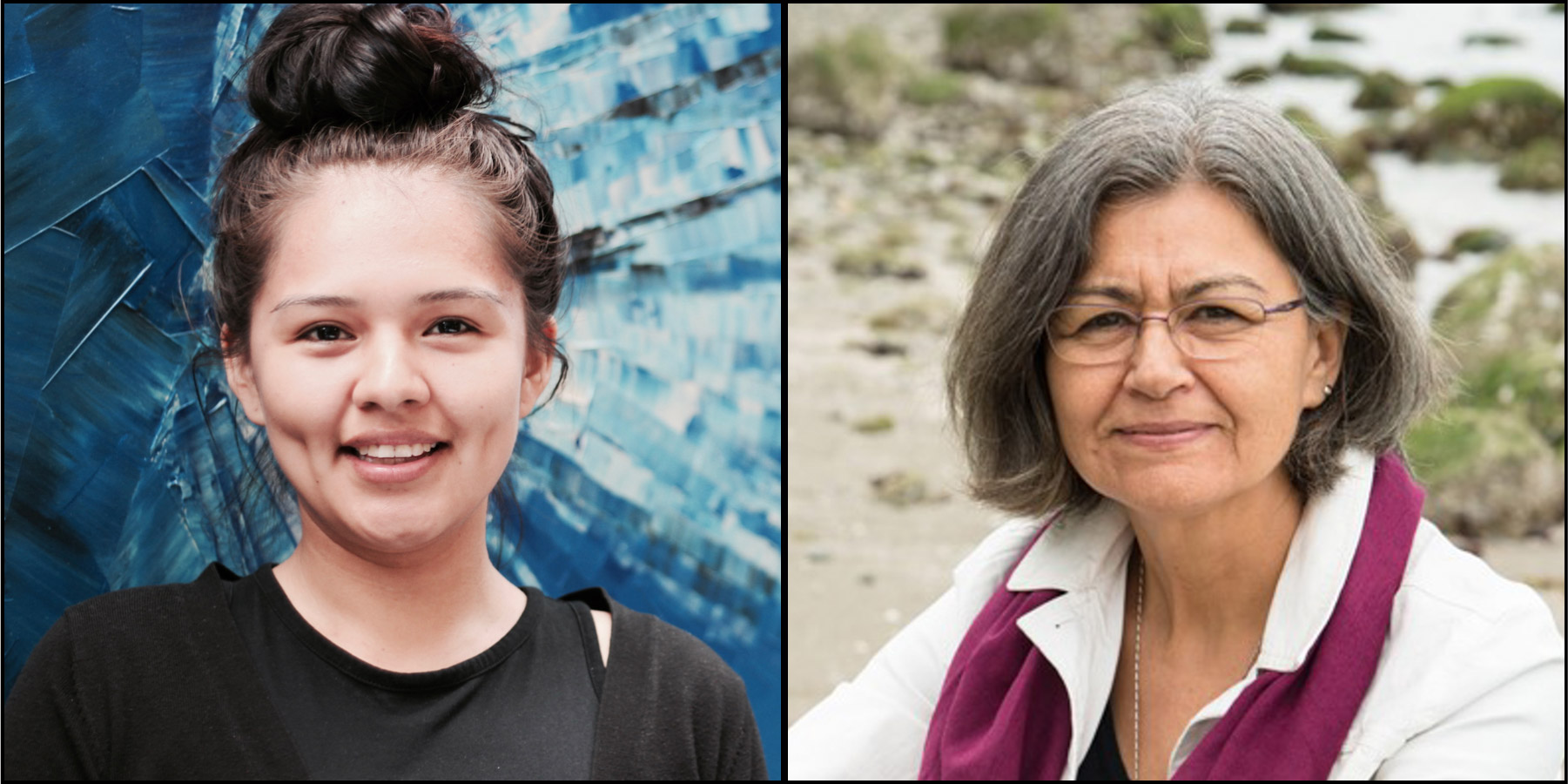
Eyvette Elliot, member of FNHA's Life Promotion for All My Relations Youth Advisory Committee, connects with Dr. Patricia Vickers, FNHA's Director of Mental Wellness Clinical Services, to ask her some important questions that Indigenous youth have for us today.
Eyvette believes it is critical for Indigenous youth to learn about self-awareness, culture and community. Trauma is a common thread between generations, which she feels somehow brings us together while also tearing us a part. Eyvette believes it is important to dig up our roots, sit with sadness, and engage in healing – before we can truly understand and be ready for where want to go and what we want to be.
Q: As we grow to understand the impacts of residential school and the 60's scoop era. What are the current impacts of trauma and substance abuse on the current generations?
A: Understanding the impact of Indian residential school, 60's scoop, Indian day school, and Indian hospitals is coming to see that we've all been conditioned to normalized injustice and atrocities to children. Children of several generations have had their brains and minds programmed toward self-alienation and into believing that their ancestral teachings are irrelevant – creating a cyclical existence of suffering. To escape suffering, Dr. Gabor Mate eloquently states that a person who uses substances is suffering from trauma and the substance is the warm hug they are searching for. The challenge with any habitual behaviour is that it separates us from ourselves and others and masks the truth of alienation.
Q: How do you combat the impacts of trauma and substance abuse for current and future generations?
A: Generally, people seek help when their habitual behaviours have wreaked havoc on their personal and professional lives because the habitual behaviour has separated them further from others and their sacred selves. As Indigenous people, we have been conditioned to believe that we are inferior, collectively and inter-generationally, through oppression, including atrocities against children, loss of territories, re-location of communities for resources, and an overarching sense of anguish. The first step is to know that the ancestral teachings are first spiritual and they are also a clear pathway for cleansing. This is a message of hope. By accepting that ancestral teachings are relevant today, especially today, brings us from alienation to connection and relationship, as well as to relationship and connection with self, others, the land and the supernatural. Living our ancestral principles, which have not and never can be destroyed by any curse, is a living process. Cleansing, discipline, compassion, wisdom, kindness, open heartedness, intelligence and relational connection are all attributes of ancestral teachings.
Q: What can leaders do to create a sense of belonging and connectedness within communities?
A: Ancestral law teaches us that we first start with cleansing ourselves. As individuals, we follow the teachings and experience them coming alive within us. We learn how to sit beside and with another who is lonely, lost, raging, judging and criticizing. We learn that belonging and relational connection starts with us, with our mind, body and soul, with the supernatural, nature and others. Like a blessing, rather than a curse, it will do its own work and we can trust that energy because we know the energy of alienation.
Q: How can we work towards advocating for traditional and holistic ways of healing to be incorporated in local, provincial and federal policies, structures, systems, legislations and funding streams?
A: As Indigenous people, we need to be of one heart, one mind. We need to be living our ancestral law—our protocol and process to meet the challenges in our personal lives and in the lives of our families, our tribes, our communities and our Nations. As we do the compassionate wisdom work of being with and helping each other by developing programs that support healing and wellness, creativity and wisdom, others will see our work and will seek assistance. Ancestral teachings are a powerful energetic force that nurtures hope, compassion, kindness, truth and courage. There are those who are gifted in moving through structures and systems, those who do the relational groundwork, those who support the healing process and those who provide guidance and direction. Whatever your strengths and gifts are, they are needed to support the healing pathway for all.

